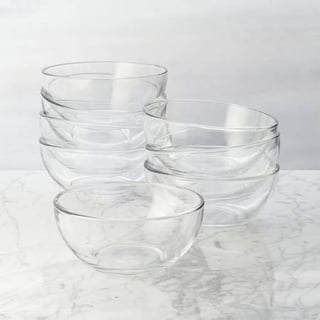I have a family member who sometimes likes to eat peanut butter by itself -- no bread, crackers, etc. For sanitary reasons, we do discourage eating directly from the jar, but that poses a quandary in terms of clean-up. (He also has a habit of not quite finishing, leaving a spoonful or two of peanut butter on the plate/bowl/whatever.) Not only do I generally end up with a couple dirty spoons, but also some small container or plate with leftover peanut butter.
Of all the things I have to clean in the kitchen, I have to say peanut butter is perhaps the most annoying. If you put it in the dishwasher directly, I still sometimes find residue left (and if there's too much peanut butter left on, the oil can even leave residue on other dishes). It doesn't dissolve easily even in hot water (at least not in any reasonable amount of time), it "gunks up" just about any cleaning device you might use (sponge, rag, brush, even gloves worn while dishwashing, etc.), and the oily element ends up contaminating any dishwater or other dishes around.
My only solution so far is to always leave any peanut-butter contaminated stuff to the very end of any handwashing of dishes I'm doing, then use the remaining dishwater to rub off most of it with my bare hands (to avoid contaminating other scrubbing devices), then put the stuff in the dishwasher for a final cleaning. That still often coats the sink or any dishwashing bin with a bit of peanut-smelling oil, which then has to be rinsed again (with more soap). And my hands end up smelling of peanuts.
I always feel that I end up wasting a lot of hot water just to deal with a few peanut butter utensils or containers. Alternatively, I have sometimes resorted to paper towels, which also seems wasteful.
Is there a better/easier way to wash away peanut butter, or even a better way of handling/finding an eating surface for peanut butter?
EDIT: I perhaps went into too much detail about my own situation, but I'd also be interested in any general suggestions for cleaning up peanut butter more easily. (I'm sure we've all wished for an easier way to clean dirty jars, etc.)

